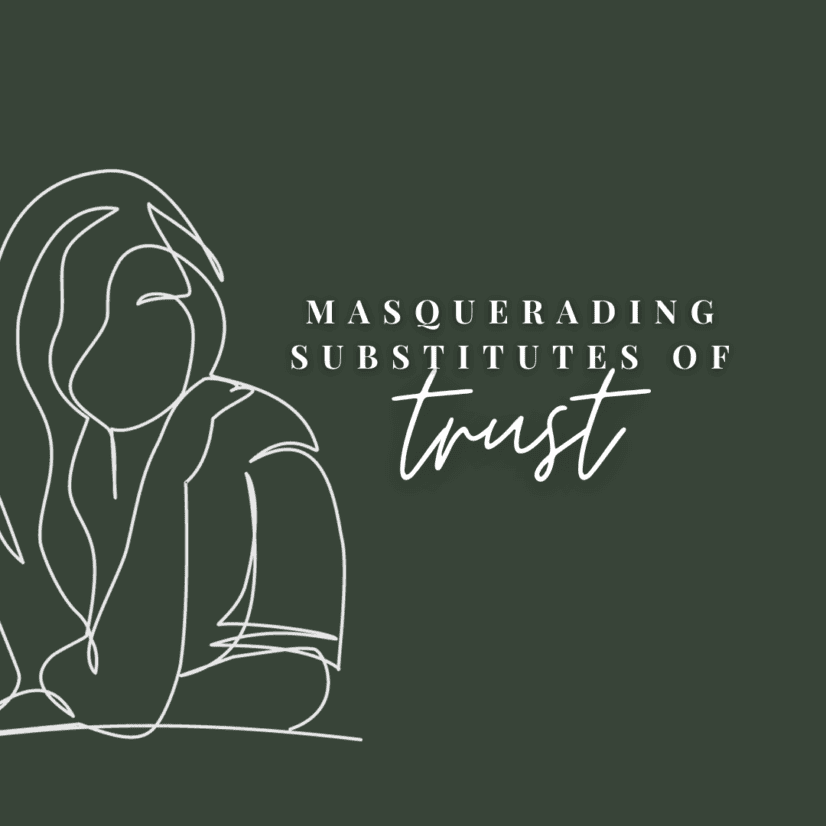One of the greatest impediments to developing trust is that we are often unaware that we are struggling with issues of it. We become so adept at co-opting other behaviors into service, backfilling our deficits with less risky options. It becomes difficult to recognize what is happening.
It’s hard enough to address the challenges we recognize. How can we hope to overcome challenges of trust that hide in plain sight?
Like finding the 3-D image hidden in a pixelated poster, seeing what’s really going on depends on adjusting your focus.
Here are how some of the most common substitutes of trust masquerading as the real thing:
- Performance: Extending trust isn’t without risk. It leaves us vulnerable to disappointment, betrayal, and hurt. Performance is one way we seek to minimize that risk. We make ourselves so irreplaceable that people will stay, love us, include us, and care for us. Because this approach can mimic devotion, we must realize that at its heart, it strives to make trust a risk-free exchange of goods for services.
- Control: We endeavor to minimize hurt, disappointment, or betrayal by leaving nothing to chance. We micromanage, helicopter parent, and rebel against any efforts to limit our influence.
- Jealousy: Jealousy doesn’t thrive in a trusting environment. Whether you distrust your own judgment or you distrust another character it points to the same bottom line; jealousy signifies a deficit of trust.
- Proximity: Trust fosters solidarity, but it cannot be established by mimicking the characteristics of trusting relationships. Dutiful togetherness or a lack of arguing is a poor substitute for the unity, transparency, and intimacy that results from a genuine trust.
- Sex: The physical intimacy of a sexual relationship can exert a powerful influence on relationships. In the presence of trust, it can foster a powerful bond; but without trust, sexual intimacy can be equally destructive.
Written By: GROW Staff

